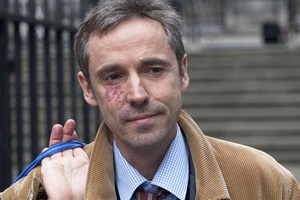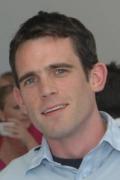
OPINION: AUCKLAND (New Zealand Herald / Pacific Media Watch): This week, the journalist who has been the face of Britain's phone-hacking scandal fronted the Leveson Inquiry into media ethics. Paul McMullan was the deputy features editor for the News of the World from 1994 to 2001.
He worked under editors Rebekah Brooks and Andy Coulson and he told the inquiry that, despite their denials, directives to hack phones came from them.
'Nothing wrong'
But he also said there was nothing wrong with phone hacking, as long as reporters were getting the truth. News Limited's the Australian newspaper called it a "robust defence".
Here is McMullan's seemingly brave investigative stance: "All I have ever tried to do is to write truthful articles and to use any means necessary to try to get to the truth."
In saying so he fulfils Chesterton's observation. The "truth" as McMullan calls it, was often salacious facts about celebrities or even people outside the public eye such as victims of crime like the murdered teenager Milly Dowler.
McMullan's claim completely belittles the gravity of truth uncovered by investigative reporters worldwide when exposing corruption and risking their lives to do so. He converts "truth" into a minor moral and then ignores all ethical standards in pursuit of it.
He even converts the "public interest" to "what the public is interested in", saying there is "no difference". There by the wayside falls another major moral for McMullan's pathetic armament of vacuous virtues.
Regret over suicide
But it was his minor moral of seeking the "truth" that became his holy grail. As long as the information is true, apparently you can do anything to obtain it.
Said McMullan: "I sacrificed a lot to write truthful articles." He sure did sacrifice a lot. He wrote an article in 1995 on Jennifer Elliott, the daughter of actor Denholm Elliott. She had fallen on hard times after her father's death and, according to McMullan's story, she was out begging and had begun to prostitute herself.
He said he acted on information the News of the World received from a police officer who was paid off by the paper. Then he wrote a number of stories about Elliott, the last one in 2003 was about her suicide. "It wasn't necessary, she didn't deserve it. I went a step too far," he said.
So McMullan does have a conscience. "It was not only not justified, it was downright wrong and I sincerely regret it. If there was anyone to apologise to I would but they're all dead."
It's that false hashing together of minor morals that has justified and perpetrated some of the most invasive, unnecessary and sordid news reports in Britain over the past two decades.
'Downright wrong'
Our outrage must not be that the tactics are just in bad taste, but that they are bad. Morally and ethically bad, or "downright wrong", to use McMullan's own words.
The other justification McMullan uses for his actions is that celebrities constantly hound the media for coverage and thus offer themselves up willingly as bait. And for McMullan, it's all for one and one for all.
Earlier this year comedian and actor Steve Coogan tore McMullan to shreds on Newsnight, saying he was "symptomatic of everything that is wrong with the tabloids", "morally bankrupt" and that it was all about selling newspapers.
Now, there's Britain's media inquiry and another one going on in Australia. Many in the media fear tighter restrictions and some politicians have called for a system of media licences.
It's important that the law catches up with crooks like McMullan and his editors, and important that the public rage against the injustice.
But good ethics goes way beyond staying onside with the law. Remember it was good journalism by Nick Davies and The Guardian that uncovered this whole mess.
And if it's sales and advertising that determines what goes to print, then ultimately, doesn't the public carry some blame?
Consumers' power
Undoubtedly the best way consumers can exercise their power is to uphold good ethics themselves and turn away. That sends a powerful message.
If you need anything else to help you decide what sort of person McMullan is and what sort of organisation News of the World was, here's another pearl of unethical wisdom he dropped: "Privacy is the space bad people need to do bad things in. Privacy is for paedos."
Another major moral sacrificed for McMullan's "truth". So Jennifer Elliott, Milly Dowler, and countless others are bad people doing bad things?
In fact, none of us decent people deserve our privacy, all for the sake of McMullan's confused and twisted morality.
In Australia, advertisers pulled support from shock-jock Kyle Sandilands of 2DayFM after he came under fire for broadcasting sexist and derogatory comments about a critic who had angered him. The heavy public backlash was similar to the reaction in New Zealand to Paul Henry's offensive remarks about the Governor-General. A petition website managed to persuade many advertisers to pull support for his show.
And people power is using new and speedy tools against what is viewed as contrary to major or traditional morals. In the modern and market-driven economy, the best weapons we have are the dial, the mouse, and the remote control.
Alex Perrottet is contributing editor of Pacific Media Watch. This article was first published in the New Zealand Herald.
(cc) Creative Commons
"If there is one thing worse than the modern weakening of major morals, it is the modern strengthening of minor morals. Thus it is considered more withering to accuse a man of bad taste than of bad ethics." - G.K. Chesterton. Paul McMullan lays bare newspaper dark arts at Levison inquiry Paul McMullan's evidence - full text



